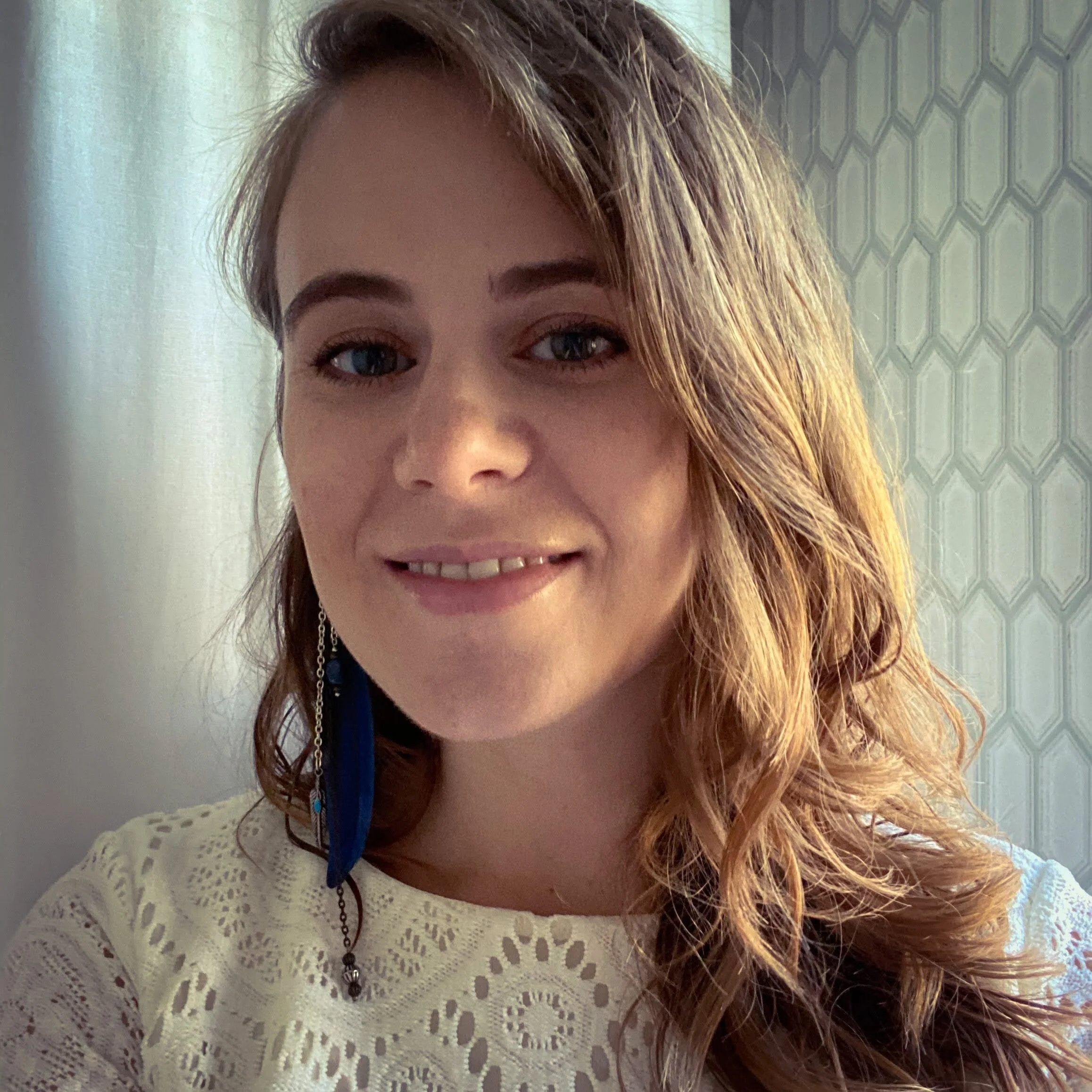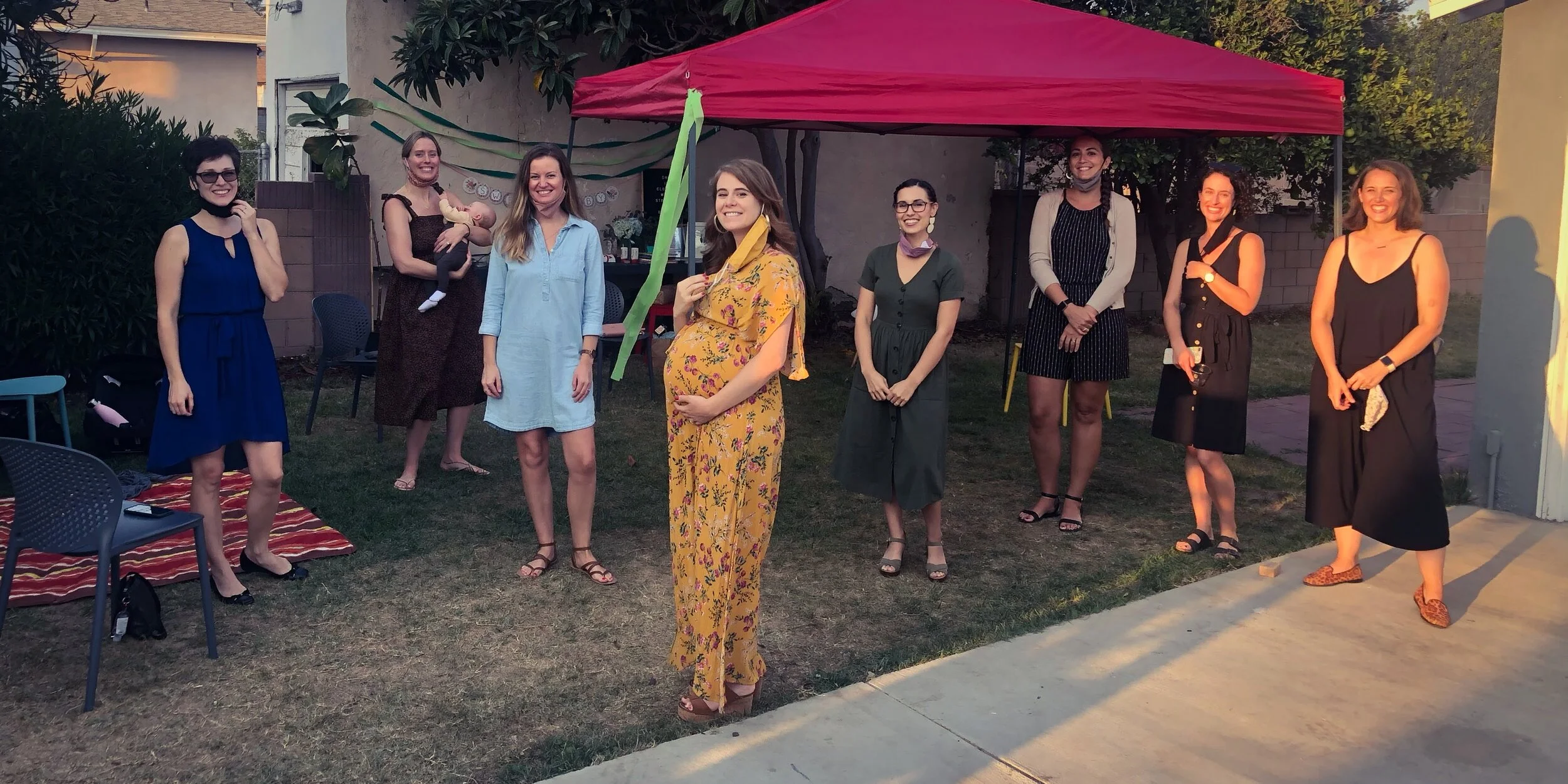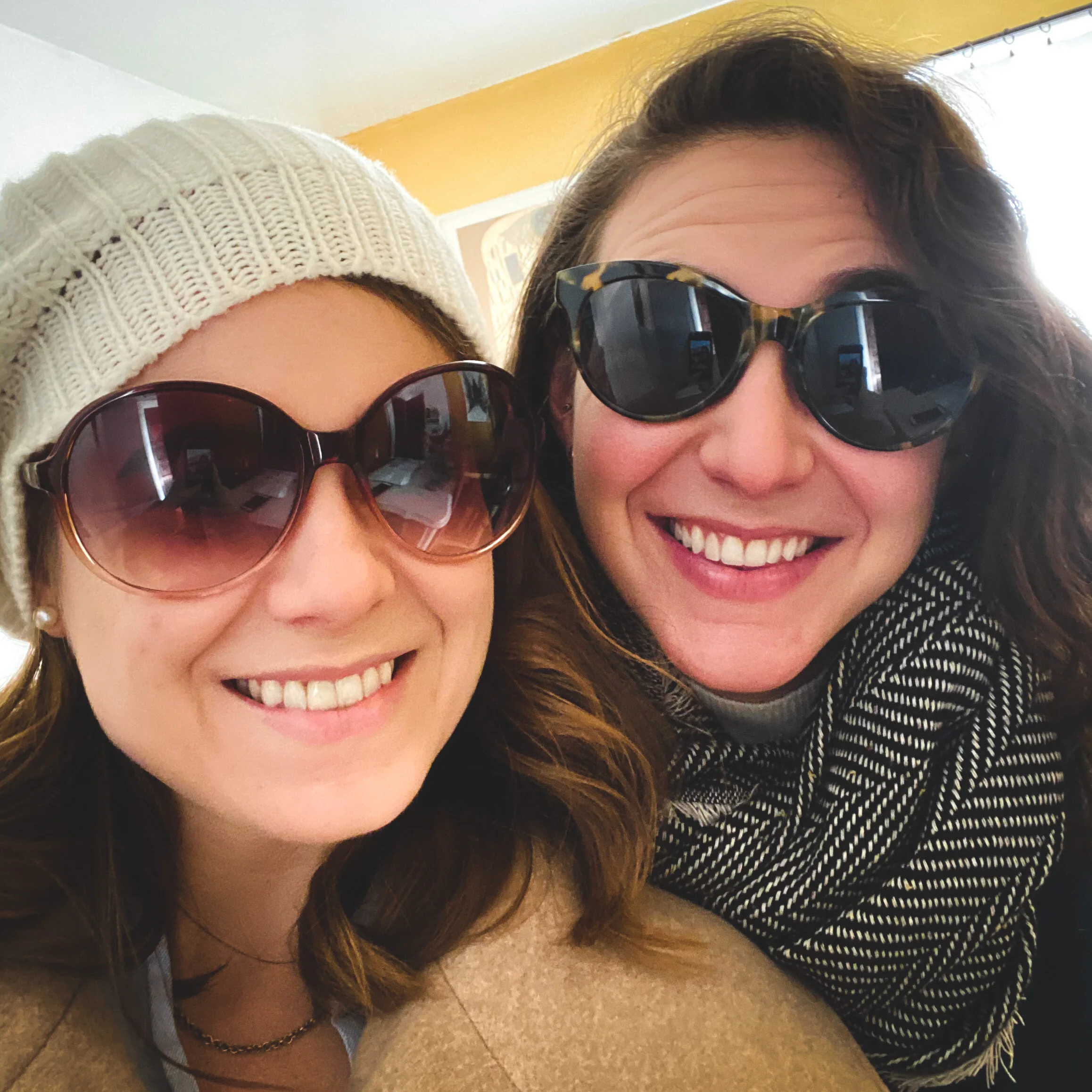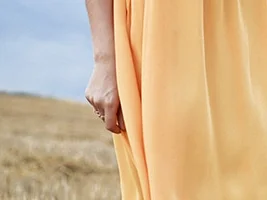posts on womanhood
I love a strong female lead as much as the next gal. But I confess that lately I’ve started to zone out whenever the elf queen, secret agent, or hero assassin begins kicking down doors and taking names. Incredible fight choreographers and highly specialized stunt women make scenes like this possible. Strong role models are valuable for young girls. It’s just that leading armies and defying supervillains isn’t a complete picture of bravery…Read the full article at the Gospel Coalition.
A period is a monthly reminder that our bodies were designed to create life. Are you ready to talk about it with your daughters? For all my fellow mamas, aunties, and big sisters, I offer three themes to get the conversation started about body changes and the path to womanhood.
I’m SO done. And somehow I can’t get enough of it all. Every day I wake up wondering if this will be the last day I ever carry a child.
When you think about God’s deliverance, do you think about childbirth? Do you envision the hands of an experienced midwife, gently massaging new life into this world with poise and wisdom?
God could have used any number of analogies when describing how His people were to relate to Him and to one another. But instead of a corporate hierarchy or military ranks, the most common metaphor used throughout the Bible is family. God uses marital language again and again to help us understand our relationship to Him. And our relationship to fellow Christians? We are mothers and fathers, brothers and sisters, people united into a new kind of spiritual family.
Today we reach the final trait that I want to explore in the mothering metaphor. We’ve looked at the ways in which all women are included in the maternal tasks of nourishing and housing life, but in order to dive into the idea of nurturing life, we have to take a step back.
Repost from Cornerstone WLA. As we've walked through some of the famous Old Testament stories in our summer sermon series at Cornerstone, I am struck by the power of story to help us better understand God and ourselves.
Housing another human is my least favorite part of mothering. It’s true, some women describe pregnancy as the time in life when they felt most beautiful. The symptoms of carrying a child can vary so widely from woman to woman that some will find they pale in comparison with the mysterious wonder of the life blooming inside. I delight in hearing these experiences. I rejoice for these women. But I am not one of them.
I have good news for those of you who really don’t vibe with all this earth mama imagery. The point of the mothering metaphor is not for us to go all Moon Goddess, track our cycles to maximize our inner seasons, and homemake everything from soap to lightbulbs.
Antiquity paints a robust image of mothering. If you consider the goddesses of old, mother earth, creation stories, artifacts of global cultures, and more, the pattern is undeniable. Giving birth—the creation of life—is so intrinsic to the feminine experience that for much of history it has been difficult to separate the two.
If you have been following for any length of time, you know this question is not new for me. Over the last several years, I’ve danced around it—from Hannah to Esther to Woman Wisdom, I have taken a deep dive into the experiences of different women in the Bible. I’ve pondered work and childbirth, motherhood and marriage. I made friends with Feminism and re-read Piper and Grudem. I managed not to rage-throw any books.
During Women’s History Month we honor an incredible legacy of females that come before us. I love hearing lesser known quotes and stories about some of history’s great heroines—Harriet Tubman, Amelia Earhart, Amy Carmichael. But they always make me wonder, what would it have been like to call them “friend”?
In the book of Proverbs, Wisdom is personified as a woman. She speaks a powerful message full of rich imagery and timeless advice that colors our perspective on the book’s theme as a whole. My recent seminar at Cornerstone West LA walked through the text of Proverbs 8 and 9 to explore what Woman Wisdom can teach us about living wisely in our world today.
The problem with being in your 20s is that you have a lot to say (and some of it is quite good) but you haven't yet earned the spiritual street cred for people to listen. Now in my 30s, I probably do have a few nuggets to share, but the imposter syndrome can be debilitating. I expect that by my 40s, I'll have achieved the right seasoning.
This summer I culminated the last few years of research into a seminar for Cornerstone West LA that offers a framework for how to tackle stories in Biblical narrative, an area of Bible reading that I’ve often shied away from. I’m proud of the work it took to pull that hour and a half together, as well as the opportunity to teach the topic…
It is no secret that as a young girl, I was the poster child for traditional, American femininity. My barbies had divine romances that ended in marriage. My favorite dress up dramatization was wedding. I followed the narratives of Belle and Jasmine and Ariel with an unnatural hunger, concocting for myself imaginative, desperate situations that would always end in dramatic rescue. In high school, I framed Disney movie stills and artwork above my bed. I dreamed that one day my prince would come...
Silence. It is an unfortunate reality of digging through the records of women past. As we try to shed our 21st century perspective to listen to and understand what it was like to be a woman in ancient Israel, Greece, or Rome, we are confronted with one of the great tragedies of patriarchy. There is but a small body of scripture devoted to the words and stories of women because for so many generations of our world's history, these voices were largely considered unimportant...
Many Bible studies that focus on female characters in the Old or New Testament are centered around determining if she is an example to follow or a cautionary tale. But when we ask of our Dorothy, "Are you a good witch or a bad witch?", we miss the overarching theme of the story, which is always first about God and only secondarily (if at all) about the major players...
As I continue to dig into what Biblical womanhood really means, I am struck by some of the more subtle feminine images that are sprinkled throughout God's Word. While not typically the focus of our early Bible education, there is actually much to be gleaned about the identity of women from the stories of scripture...
This week we celebrated 500 years since the Protestant Reformation. As a nod to this particularly notable anniversary, a favorite (non-religious) podcast of mine, Stuff You Missed in History Class, shared an episode this week dedicated to three women who were influential in making the reformation happen.
Reposted from Cornerstone West LA. I thought a lot about the women of Cornerstone when I first read Half the Church by Carolyn Custis James. I thought about friends who set aside time to counsel other women, those who welcome foster children into their homes along with the schedule disruptions and paperwork and potential heartache, and women who study deeply the Word of God so that they may bring it to bear on our souls at conferences and events.
I shared in my last post about my love for Sarah Bessey's Jesus Feminist. I get lost in how she weaves Biblical truth with personal narrative, how she feeds new life into stories I've skimmed before and gently questions social norms with the full, warm embrace of a crunchy granola mother hen. This far-off sister has impacted me greatly, so it's only fitting that the analogy in her book that compels me most is one of spiritual mamas and midwives.
Last summer I had the opportunity to speak on the topic of Biblical Womanhood at Cornerstone. It's a subject I particularly enjoy, but one I hadn't really explored from all ends of the spectrum. And by that I mean, I was very familiar with complimentarian doctrine, but had little clue how the other camp tackled the topic. I wasn't sold on Piper and Grudem's definition of feminine identity—arguing that Eve's punishment in the Fall reveals essential traits about women (shouldn't we instead look at the design and pre-sin characteristics of Eve for God's intention for women?)—so I started hunting around for other perspectives.
Last school year I was asked to share as part of a panel on Intersectional Feminism—that is, various aspects of our identity that intersect with our feminist views and produce unique and complex variants. I was specifically approached because many of my colleagues know that I am a fairly conservative (by their standards) Christian. I had about five minutes to share, and this is roughly what I said.
Reposted from Cornerstone West LA. When we began our discussion, we considered perspectives on vocation in the context of a family that has some amount of choice about one parent staying at home to pursue full time childcare. But the reality for many families is that they aren’t asking if mom should go back to work because circumstances make it inevitable...
Reposted from Cornerstone West LA. In Parts One and Two of this series, we have looked at the theology of work and family and offered a framework for considering vocational choices in different life stages. Now, I want to really get down in the trenches for those who do any amount of gear shifting during the day between the job of "mom" and any other professional hat. How do you navigate the practical aspects of balancing the high calling of a wife and mother with the constant phone calls from the office?
Reposted from Cornerstone West LA. I don’t know what it is about the start of fall that feels like new beginnings. Probably because I have spent all but a year of my life participating or working in academia, August is my New Year. And this year, it has me thinking about women and working. Maybe you are dropping off your youngest child at Kindergarten or (like me) finally starting to come out of the fog of baby-hood. Maybe you are marveling at the first signs of life growing inside you and beginning to imagine life as a family of three. At many stages of parenthood, the question arises: should Mom go back to work?
Reposted from Cornerstone West LA. Though I don’t presently feel the heat of battle, I am told that the “Mommy Wars” are still alive and well here in America. Whether you identify as a SAHM (stay at home mom), WOHM (working outside the home mom), WAHM (working at home mom), or are still TTC (trying to conceive), the world loves to figure out what neat little group to fit you in.
Reposted from Cornerstone West LA. Mom confession: there have been a few desperate times in the years since having children where I hid in the shower or pretended to take a long time on the toilet just for a few moments of uninterrupted silence. Mothering is hard, and especially in the early years it can feel like you are barely keeping your head above water. I am told it will get easier eventually.
I was halfway through my first pregnancy when my OB's archaic sound device couldn't find a heartbeat. She seemed non-plussed and suggested a follow up with the ultrasound tech. I had already seen and heard my baby at previous appointments, already announced to overjoyed friends and family that we were expecting our first child in June. At nearly 20 weeks, I found the her referral odd, but I didn't know enough to be worried....
Anderson Columbus Storrs was born on August 4, 2014 at 1:49 p.m. He weighed 7 pounds and 6 ounces and measured 19 and a half inches long. He was exactly 2 pounds larger, yet only a half-inch longer, than his sister, but there was a world of difference between their stories...
Few things comfort a not-so-new mother quite like a glass of wine, a good book, and a warm bath. Especially when those three can be enjoyed in conjunction, while her little angel sleeps peacefully down the hall...
Did we miss Eloïse's 8-month marker? Wasn't that over a week ago? (Cue Charlie Brown music). Here's a very quick look at the milestones for the last month and change...
Sleep is elusive at the Casa del Storrs. I'm just over seven months into mommy-hood, and still waking about three times a night to feed my little angel. I thought for sure I'd start eliminating feedings here and there as she got older and began to rely on food more, but I find myself actually adding in daytime feedings (and unintentionally adding them at night as well) to account for her growth and development. Like most women, I had a rocky start with breastfeeding...
First, read this. Seriously. Go read it. It's an excellent education in the history of Feminism and its relevance in culture and the church today. And it's actually much better than this post, so if you only have time for one, read what Amy has to say...
Yesterday was Eloïse's one month birthday, and so it seems only appropriate for me to offer some reflections on her first 31 days of life...
On Saturday, October 6, 2012 at 3:44 am, God brought Eloïse Opal Storrs into our family completely according to His own plan and timing...
About three weeks ago I went in to see a specialist for a routine ultrasound. He was checking that our little one has all her fingers and toes, and in the process noticed that she is a little small for her age...
As I say goodbye to the 2nd Trimester this week, I thought now would be a nice time for a little pregnancy reflection...






















![[Updated] The Feminists](https://images.squarespace-cdn.com/content/v1/5963b95b6b49984858d9bfbd/1505478910451-B8QZDDV3TWVLV23IBDRQ/File_000.jpeg)












The Israelite matriarch Rachel is renowned for her beauty. She was the younger daughter of a man named Laban, and the woman Jacob hustled for seven years to marry—only to double down for another seven years after Laban tricked him into wedding Rachel’s sister Leah instead. It’s a wild story. But when we first meet Rachel in the book of Genesis, before we learn about her beauty, we read about her vocation. Rachel was a shepherdess.